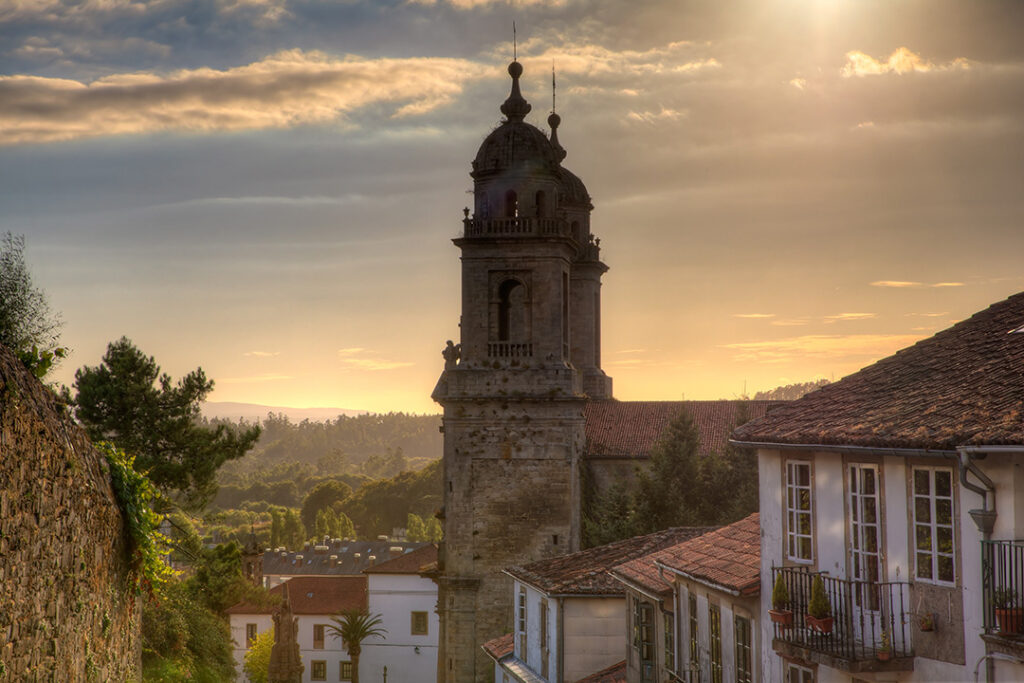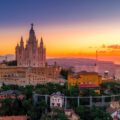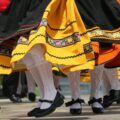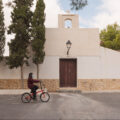Allies or opponents? Catholicism and politics in the Spain of today
Allies or opponents? Catholicism and politics in the Spain of today
A blend of conflict and agreement characterised relations between Church and state in Spain in recent years. So where exactly is Catholicism in the Spain of today?
The calling of a snap election for 23 July 2023 meant the end of a three-and-half-year Spanish legislature, in which the relationship between the Catholic Church and the state was a recurring issue. This period has been defined by disagreements on various issues relating to moral and ethical positions. However, there has also been a shared focus on poverty and promoting cohesion in society between both the Church and the state.
With a renewal of the Socialist-led government as one of the most likely outcomes of the 23 July election, it is important to look back on how this relationship has developed. Taking this into account, we can also consider better what may be to come in the upcoming years.
Catholicism in the Spain of today
Like in much of Western Europe, the number of Catholics in Spain has fallen significantly in the 20th century.[1] This has been accompanied by a rise in the number of people professing no faith. With the backdrop of this change, the Church has been forced to accept a changing role in society, with its leadership role on ethical and moral issues being challenged.
Therefore, when the centre-Left Socialist party and the leftist Podemos party agreed on a coalition government in December 2019, it seemed that there may be further challenges to this position in coming years. An early example of this changing dynamic came as the Catholic Church was not given a role in leading the country’s COVID-19 memorial service. Instead, they sat alongside representatives of other faiths during a secular service.[2]
Conflicts and committees
As part of this increasingly secular Spanish state, the Church has also faced other challenges to its issues on moral issues. In December 2022, the parliament approved a law widening abortion access, most notably by allowing women from the age of 16 to have an abortion without parental consent. This law was described as a “red line in civilisational terms” by the Spanish Bishops Conference.[3]
The expansion of abortion rights followed the 2021 legalisation of euthanasia, another policy deeply opposed by the Church, who had called it an “attack against life.”[4] This led the Bishops’ Conference to state in March 2022 that Catholics are “absolutely obliged to object” to such policies on abortion and euthanasia. Furthermore, the Church has expressed its disagreement with the government’s expansion of rights for transgender people, accusing the state of an “ideological colonisation” of the country through its “ideology of gender.”[5]
On top of these clashes over ethical issues, the Church also vocally protested against changes that minimise the role of religious education in the public education system in 2020.[6] However, perhaps the most significant step taken during this legislature for the long-term future of the Church was the creation of a ‘Committee of Investigation’ into abuses in the Catholic Church. The committee, which is currently working on a report, was created in March 2022 despite the opposition of the Church and its refusal to directly participate on its board.[7] It remains to be seen what will be revealed in its final conclusions and how they will impact the Church’s image.
A new alignment
However, while these issues of disagreement may grab the headlines, there have also been important areas of ideological overlap between the Church and the governing coalition. In particular, this is true of economic policies, and the response to the pandemic and the cost of living crisis.[8]
As the economic impact of the pandemic took hold, the coalition unveiled a series of policies aimed at supporting the Spanish people.[9] In response, the Church’s opposition to the policy of a minimum basic income for the poorest people attracted criticism.[10]
However, since the pandemic, statements released by the Episcopal Conference have regularly placed the needs of the poor at the centre of their focus. In March 2022, the president of the conference called for politicians to “reconsider the order of political priorities.” Archbishop Omella went on to add that politicians must challenge the “great inequalities between the rich and the poor.”[11]
The Church has also taken more direct action, particularly through its charity Caritas. Not only does the charity spend a significant amount helping those in poverty – 403 million euros in 2021 – but it has also echoed the demand that politics places the needs of the poor first.[12]
This support for policies aimed at social justice has helped to foster improved relations between members of the progressive parties and the Church. In particular, Yolanda Díaz, the leader of the leftist Sumar party (which replaced Podemos) and vice-president and Minister of Employment, has openly shown her desire to engage with Catholic leadership.
In December 2021, Díaz travelled to the Vatican for a high-profile meeting with Pope Francis, in which she spoke about her party’s labour reforms that had widened worker protections.[13] Díaz has also attended events held by the Catholic Messengers of Peace charity in Madrid, showing that on the issue of poverty, there is significant overlap between the Church and the government.[14]
Alternatively, the Catholic Church has been among the most vocal supporters of the rights of migrants coming to Spain. This applies to both legal and illegal migration. With this in mind, they have condemned the “discourses of hate” towards migrants.[15] Although reluctant to name individual parties, as a previous EARS article has demonstrated, this has led to clashes between the Church and right-wing, anti-immigration political narratives. Therefore, the Church has been much closer to the governing coalition on this subject than to the right-wing opposition.
Aftermath of July 23rd
The July 23 elections left many observers surprised, as the Socialist Party exceeded expectations. This means that although currently unclear, it is likely that the party will be able to continue leading Spain, in coalition with the leftist Sumar.[16]
Given this uncertainty, it is so far unclear exactly which policies will be pursued in the coming years. However, it is probable that the division between conflict on ethical and moral positions, but agreement on economic priorities, continues to be a feature of Church-state relations in Spain.
Interested in similar topics? Go to our Dashboard to learn more.
Sources
[2] Homenaje de Estado: El laicismo se impone en la primera gran ceremonia aconfesional | España | EL PAÍS
[3] La Conferencia Episcopal advierte que la nueva Ley del Aborto es una “línea roja en términos de civilización” | España
[4] Las religiones en España se plantan contra la ley de eutanasia: “Atenta contra la vida”
[5] Los obispos españoles arremeten contra la ‘ley trans’ y la tildan de “perversión” | Sociedad | EL PAÍS
[6] La iglesia católica indignada por la Ley Celáa | Asturias Laica
[7] Todos los partidos, salvo Vox, aprueban investigar la pederastia en la Iglesia católica española
[8] Morality or charity: What is the future role for Catholicism in Spain?
[9] La Moncloa. 21/04/2020. Medidas económicas y sociales en la crisis del COVID-19 [Consejo de Ministros
[10] Los obispos dan una patada al Gobierno en el culo de los pobres
[11] Omella alerta a los gobernates: “La pobreza crece de forma alarmante en España, no se distraigan”
[12] Cáritas pide al Gobierno que incluya a los más vulnerables en su plan contra los efectos de la guerra en Ucrania
[13] Yolanda Díaz presenta al Papa Francisco su reforma laboral en un encuentro “muy emocionante” | España
[14] Yolanda Díaz destaca que el Padre Ángel y Mensajeros de la Paz representan que “España es un país maravilloso” que “cuida a la gente”
[15] José Cobo: “En tiempos de crisis, el migrante siempre es un bote de humo para los discursos de odio”
[16] Pedro Sánchez rules out return to polls after Spanish vote delivers hung parliament | Spain | The Guardian






